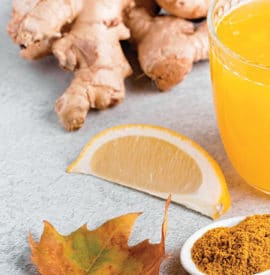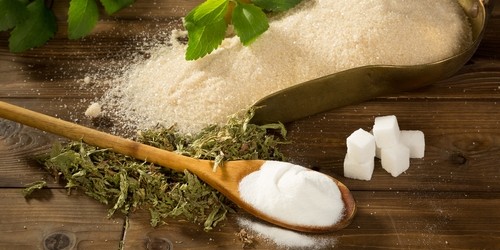To say that times have been a bit stressful is an understatement. Prior to COVID-19, in statistics gathered in 2017 by the American Psychological Association, people ranked the future of our nation, money, work, political climate, and violence and crime as the most common sources of stress. In 2020, an election year no less, these stressors haven’t gone away. If anything, they’ve likely amplified for people on at least one if not all of these fronts.
So, what can we do? A good start is to try to stress less. And we’re not just talking about mental stress. It’s important to address the stress the body faces, too. Now is a time to build resiliency both mentally and physically. Because when we’re stressed, we diminish our immune system’s ability to fight. Given that experts are estimating we will be battling the coronavirus through the fall and winter and into 2021, while at the same time being faced with the typical flu season, it would be a good idea to work on getting stress in check so your body is better able to fend off bugs and viruses in the months ahead.
“We see stress rising in the midst of a political election period,” says Jenn Dazey, N.D., R.H., with the Department of Botanical Medicine at Bastyr University in Washington, who also has her own consulting practice. “We are stuck at home or working from home and are not able to care for one another as we are accustomed to doing. We can’t support restaurants or our parents, so we don’t get the fulfillment from being a part of a community and helping one another. The current stresses are so profound—there are so many layers.”
To manage stress, Dazey recommends focusing on the staples of sleeping, maintaining a good diet and exercising. “Pay close attention to the things that add small insults to your health. Comfort and snack foods, for instance. How can you polish those up?” asks Dazey, who suggests deconstructing your favorite snacks to make them healthier, with a focus on micronutrient density. “Superfoods and nutrient density help to lower inflammation and your environmental toxicity burden, which will help you to be more vibrant and resilient,” she says.
Self-care also is more important than ever, says Leslie Meyers, N.D., with WaterLeaf Naturopathic Medicine in Asheville, N.C. “Self-care practices—where you have time for yourself, where you are doing things that are not task-oriented, that make you feel good and you enjoy—are key. Sit with a cup of herbal tea and a book. Take a bath or pick up a sport, gardening or knitting, or something like that,” she explains. A mindfulness practice such as meditation and being kind to yourself are also important. Or if things get difficult, Meyers says, it’s important to get support.
Whatever activities and habits you choose, Meyers emphasizes the importance of having a routine to mitigate stress. “Routine is really important during these times. If you don’t have one, it’s a good idea to at least build it in for the first half of the day. Wake up, meditate, have breakfast, exercise, do your work projects you need to do online, and go outside—and then whatever else for the rest of the day,” she says.
Magnesium
Taken solo or with calcium, magnesium is known to calm the nervous system. It’s not sedating but just makes the system work better, Dazey says. Many people, she notes, take it at night to help them relax and sleep. Magnesium is also known to ease leg cramps or muscle tension, which Dazey says can be important when you want to stay active. “If our muscles feel sluggish or crampy, we are more likely to sit and let that stress build and build. To manage the fight-or-flight feeling of stress, you should be moving your body. When we don’t move, stress builds and it becomes chronic.” Consider taking 500–600 mg of magnesium a day. If you are taking it with calcium, look for a 2:1 ratio of calcium to magnesium.
L-theanine
The amino acid L-theanine is known to help calm, focus and quiet the mind. It’s found in green, oolong and black tea, and is also available as a supplement. “If you have anxiety, where it feels like you have had too much coffee, L-theanine is helpful. It is calming, and you don’t have to take it every day. It will work for four hours at a time,” Meyers explains. That way, you can keep L-theanine in your desk or in a purse and have it at the ready if you feel yourself getting anxious. And unlike some anti-anxiety drugs, it is nonsedating and will simply calm you down. As a supplement, try 100–200 mg, two to three times a day.
Vitamin D
Important for overall health, vitamin D also is good for mood, says Meyers, who recommends 2,000 IU per day. Studies have linked vitamin D to reduced depression, as well as decreased levels of the stress hormone cortisol.
B vitamins
The B vitamins are helpful for stress, in particular B12 and B9, which can keep nerve cells healthy and balance our mood, and B6, which helps the body produce neurotransmitters such as the mood-booster serotonin. Taking a multivitamin or a B-complex supplement will suffice here.
Ashwagandha
Used in Ayurvedic medicine, ashwagandha is a go-to adaptogen for stress and can also lessen fatigue, particularly in those suffering from chronic stress. “Ashwagandha is a calming, safe adaptogen that works for almost everyone,” Dazey says. Be aware, however, that it tends to work better over time; it doesn’t always kick in right away, she says. Try starting with a dose of 500 mg daily.
Try It:
Irwin Naturals Ashwagandha
Natural Vitality Calm












Comments